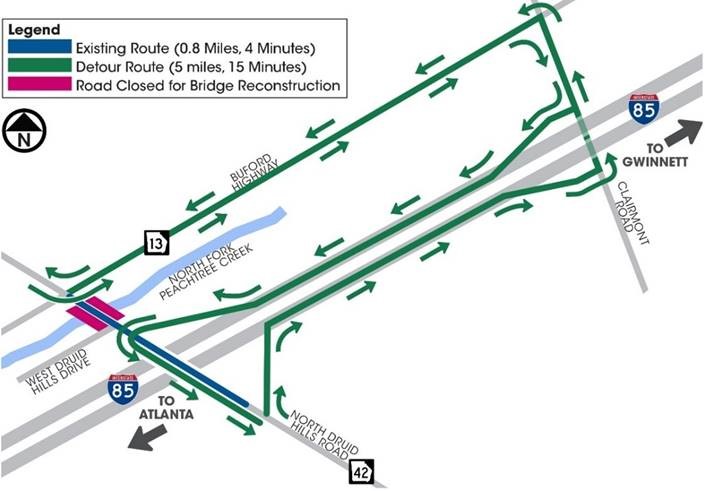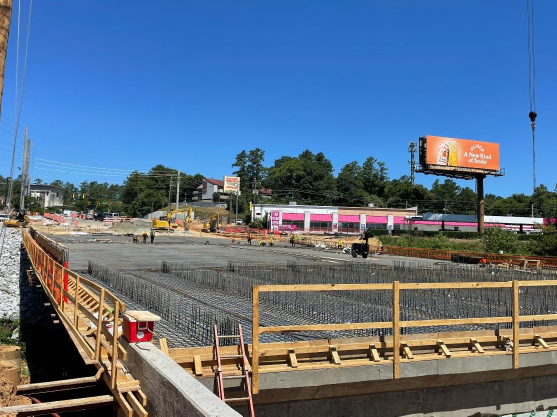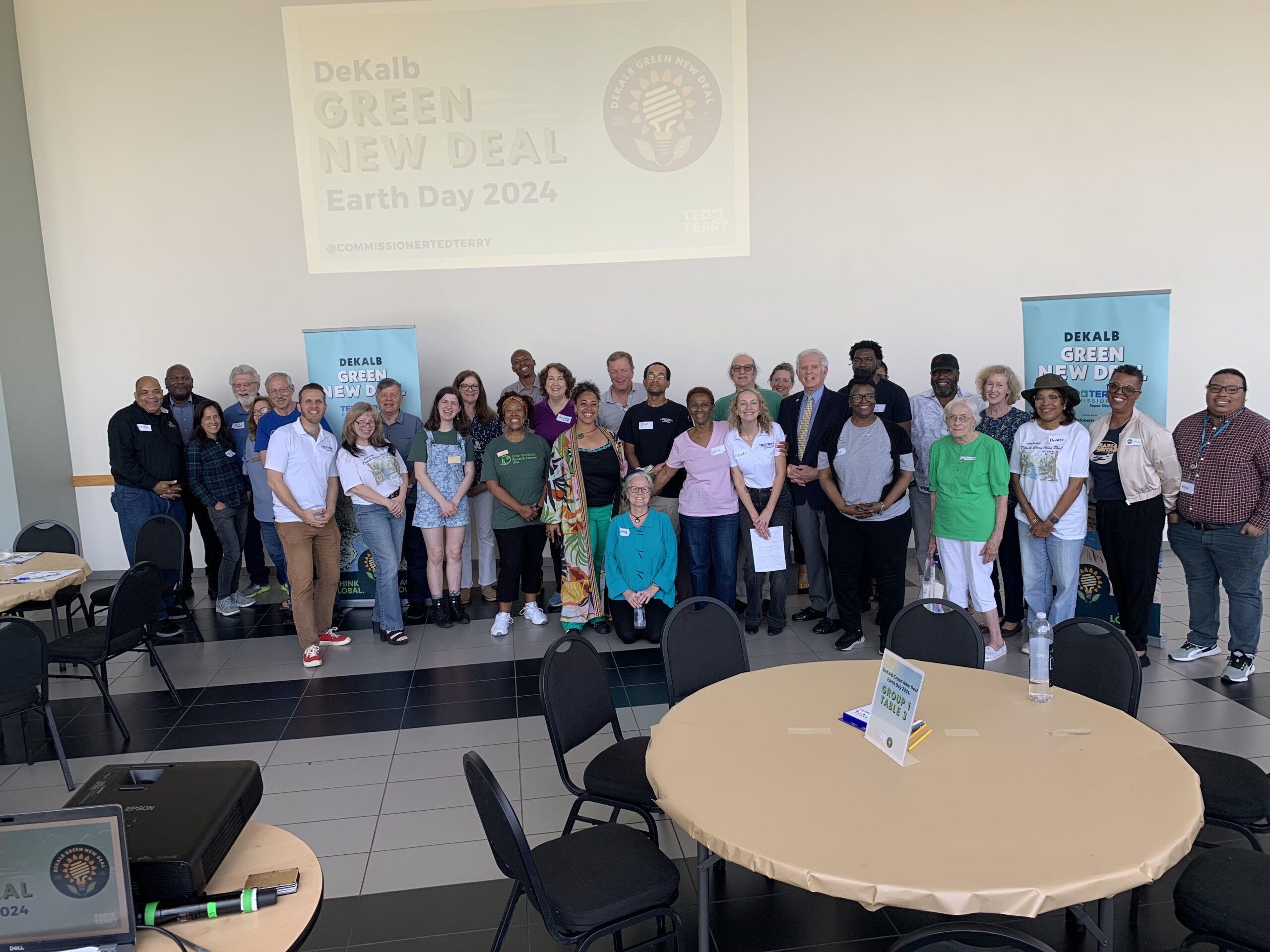2024 Earth Day Launch Successfully Is In The History Book!
The Super District 6 Team and I had a great time celebrating Earth Day with nearly 100 DeKalb County residents over the weekend on April 20. We started the morning with thoughtful discussions on climate solutions and Environmental Justice, spent the afternoon planting fruit trees and pollinator habitat at the Chamblee Library Productive Urban Landscape, and rounded out the day by enjoying the sunset at DeKalb County’s natural wonder, Arabia Mountain.
Thank you to all our friends that joined us! A special thank you to the DeKalb County Team: Commissioner Michelle Long Spears and the District 2 team, Planning and Sustainability Department, Public Works Department, Porter Sanford staff, Chamblee Library staff, Arabia National Heritage Alliance, and our Park Rangers and Naturalists for joining us in making the day extra awesome!
Team Terry Has Just Begun!
These discussions do not end after Earth Day, because EVERY DAY we should cherish and celebrate!!! And to keep the momentum going, mark your calendar with a Save the Date!
My office will be hosting another Environmental Justice event, 9 am on Saturday, June 29 at New Life Church and Community Center. Click here to RSVP.
For more information on this event, the DeKalb Green New Deal, and what my office is doing to prioritize Environmental Justice in DeKalb County you can visit my website commissionertedterry.com
Stay In The Know
There is a lot going on that impacts District 6. In an effort to save time, I want to remind or invite you to connect with me on my website or either Facebook or Instagram. My handle is Commissioner Ted Terry.
- Make sure you are prepared and have a plan! It has been reported on the news, through local media outlets, email blasts, and social media… Beginning Friday, April 26th, GDOT will begin the work on the North Druid Hills Bridge causing a 90-day bridge closure and detour to SR 42/North Druid Hills Road bridge over North Fork Peachtree Creek for this key bridge replacement. Georgia DOT wants you to plan ahead.
DeKalb County and GDOT have been collaborating and have a plan in place, but there will be impacts that packing your patience will be the main way to get through this.
Signage is going up, traffic lights are being synchronized and … DeKalb Police will do what they can to route traffic but remember that an abundance and distraction of “blue lights” and police activity can slow things down even more.
My office will continue to work with the Administration and commission district offices to share any information we receive,
but for the quickest and newest, GDOT is encouraging you to sign up for alerts at https://www.dot.ga.gov/
- Today is the last day to apply for the 2024 DeKalb Virtual Career Academy (DVCA) summer jobs training program for the five-week program, which runs from June 3 through July 5.
DVCA will provide 700 internships to DeKalb residents ages 14 to 24, who will be paid $10 per hour.
The academy encompasses a variety of elements, including academic enhancement, counseling, career and credentialing training, GED preparation, and motivational workshops.
Visit https://www.dekalbcountyga.gov/careeracademy to apply.
- On my Facebook you will also see that the Model Atlanta Regional Commission (MARC) youth leadership program is accepting applications for their 2024-2025 class. The applications are due by Friday, May 3rd and space is limited.
MARC has engaged hundreds of students in experiential learning with the region’s leaders and experts in transportation, natural resource sustainability, community development, and more.
- Our distinguished Sheriff Melody Maddox will be hosting the Boys to Men & Girls to Pearls summer camp. Once again, the flyer is on my Facebook with all of the application and camp information.
- Our AWESOME PAL Plus program with the DeKalb County Police Department has a wonderful swimming program for youth. From scared of water to unstoppable is the goal with their swimming program. For information about this, please send an email to amingo@dekalbcountyga.gov
- The DeKalb County Department of Recreation, Parks and Cultural Affairs will hold four guided walking tours to review trail and greenway improvements along the County’s trail network on Saturday, May 4.
The community is invited to help shape the future of the County’s trail and greenway network through the Trail and Greenway Master Plan planning process.
There is also a lot of wonderful events for all ages. Please visit their webpage on the DeKalb County website and familiarize yourself with the plethora of resources they offer. There is also summer camp, youth sports, and information about the annual Senior Olympics which begins May 6th!
- Decide DeKalb Development Authority, the leading economic development organization in DeKalb County, is launching a DeKalb County Black Business Guide and is actively accepting entries.
This comprehensive guide aims to celebrate and highlight the vibrant spectrum of Black-owned businesses throughout the county. If you are a Black Business in DeKalb County, visit my Facebook for the flyer with the QR Code to get started.
- The PDK Good Neighbor Day Air Show and Open House is May 11 and this one is special! It commemorates the 80th anniversary of D-Day, the day, June 6, 1944, in World War II on which Allied forces invaded northern France by means of beach landings in Normandy.
Bring your entire family out to PDK to see antique airplanes, military aircrafts, and DeKalb County fire trucks and ambulances on display at PDK during the open house from noon until 5 p.m.
Gates will open at 10 a.m.
There is no admission charge but parking is $20 per vehicle.
In closing a few “calls to action”
- Reminding District 6 that the DeKalb County Animal Shelter is still seeking volunteers to walk shelter dogs. Pet families know how important it is to socialize and exercise dogs and for those who are stuck in shelters it is critical and can impact coveted adoption opportunities!!!
- Email Brian Cooke- bcooke@DeKalbAnimalServices.com for additional information or visit my Facebook Commissioner Ted Terry for a QR code.
And lastly, emailing is the most efficient means of communications. I may not have an immediate answer or be able to make an immediate resolve, but I can promise that my office will forward your concerns to the respective department head for assistance.
My email address is easy… Ted@DeKalb CountyGA.gov. Phone calls are routed if you call my office number, 404-371-4909.








